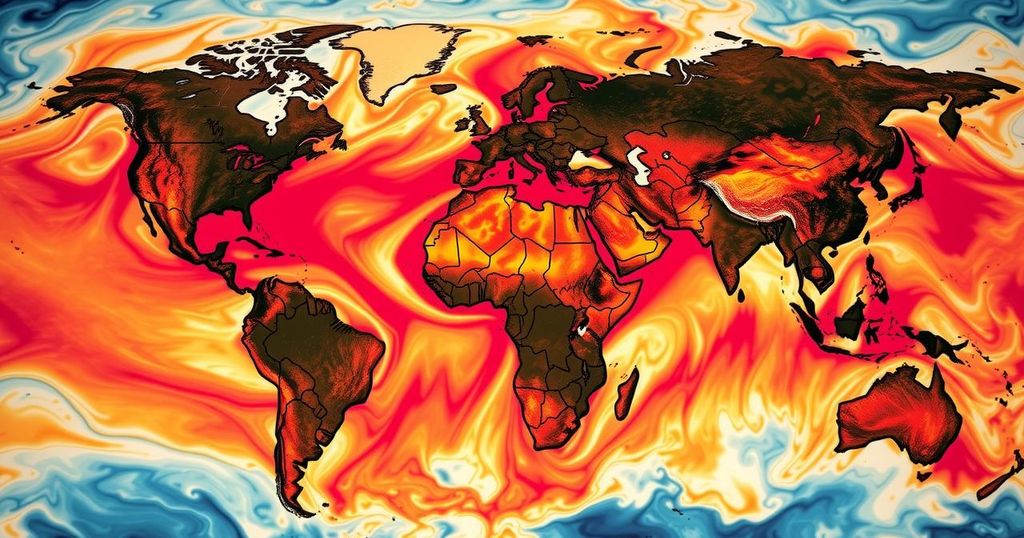In 2024, global temperatures reached record highs, making it the warmest year ever recorded, alongside significant declines in Antarctic sea ice coverage and historic ocean heat content spikes. Regions such as Africa, Europe, and North America reported their warmest years. Analysis from multiple scientific organizations confirms these alarming trends, highlighting the urgent need for climate change action.
According to an analysis by NOAA’s National Centers for Environmental Information (NCEI), 2024 marks the warmest year on record globally. The report noted that Antarctica experienced a significant decline in sea ice coverage, reaching its second lowest extent recorded. Highlights of the report reveal that the average surface temperature of the Earth was 2.32 degrees Fahrenheit (1.29 degrees Celsius) above the 20th-century average. Notably, all of the ten warmest years recorded since 1850 have occurred within the past decade, underscoring the alarming trend of rising global temperatures.
The report indicates that in 2024, regions such as Africa, Europe, North America, Oceania, and South America experienced their warmest temperatures on record, while Asia and the Arctic encountered their second warmest year. Furthermore, the global temperature surpassed the pre-industrial average by 2.63 degrees Fahrenheit (1.46 degrees Celsius). Other climate organizations, including NASA and the Copernicus Climate Change Service, corroborated NOAA’s findings.
Additionally, Antarctic sea ice extent averaged 4.00 million square miles in 2024, representing the second lowest recorded coverage, with both maximum and minimum extents ranking second lowest. The status of Arctic sea ice was also concerning, ranking seventh lowest overall. The upper ocean heat content reached historic highs, emphasizing the critical role of the oceans in absorbing excess heat contributions from climate change.
Tropical cyclone activity in 2024 was consistent with the 1991–2020 average, with a total of eighty-five named storms, of which forty-two reached tropical cyclone strength. This year’s data on the dynamics of storms revealed a below-average level of global accumulated cyclone energy, suggesting a nuanced interpretation of tropical cyclone patterns amid increasing oceanic temperatures.
The topic of global warming has received heightened attention in recent years, with increasing temperatures posing significant concerns for environmental, social, and economic stability. The reports from credible organizations such as NOAA play a crucial role in understanding temperature rises and related climate impacts. The observations indicating 2024 as the warmest year highlight the ongoing trends of climate change, urging immediate actions to mitigate these effects.
In summary, the 2024 climate report illustrates a concerning escalation in global temperatures, as evidenced by records indicating it as the warmest year in history. The significant reduction in Antarctic sea ice, alongside critical records of ocean heat content and fluctuating tropical cyclone activities, reveals the profound implications of climate change. These findings call for urgent environmental awareness and action to address the pressing issues of climate change and its worldwide impacts.
Original Source: www.noaa.gov






